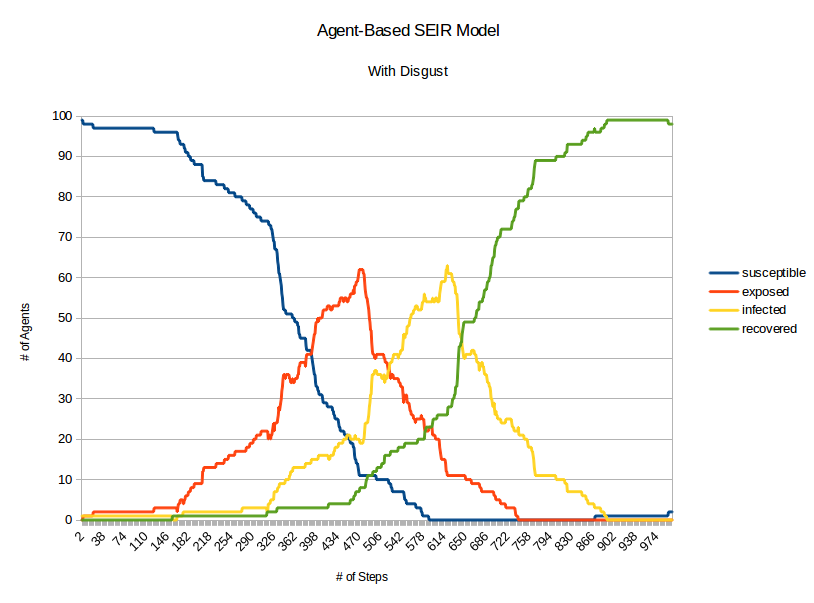Disease avoidant behavior can be observed across the animal kingdom, from tadpoles to humans. The fact that this behavior is so prevalent implies that it confers a significant evolutionary advantage. Current epidemic models, however, do not sufficiently consider this behavior. This research uses agent-based epidemic models to measure the effect of disease avoidant behavior on the spread of disease. Preliminary results suggest that the inclusion of disgust (as a disease avoidant behavior) leads to a reduction of the basic reproduction number, a slowing of the spread of infection, and a lower infection peak.

Preliminary results of SEIR Model incorporating avoidant behavior.

